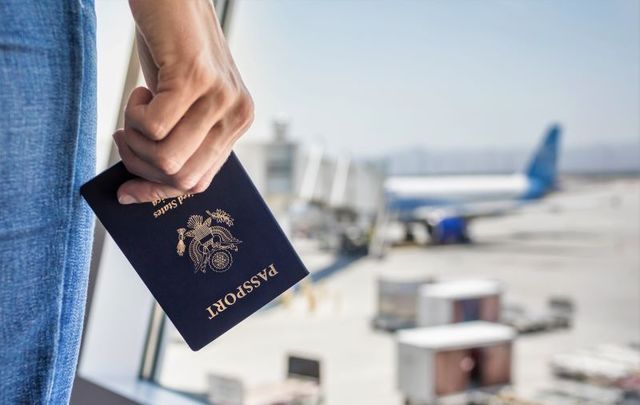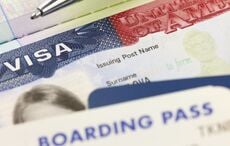The European Union has opted this week to not reimpose restrictions on travelers arriving from the US despite an increase in COVID infections, hospitalizations, and deaths in the country.
The EU has decided against imposing new rounds of travel restrictions against arrivals from the US, according to The Washington Post.
That, however, could change. One EU official told the Washington Post that “the covid situation has deteriorated” in the US and that the European Council will continue to monitor the situation.
“That could mean a ban on unvaccinated travelers,” according to WaPo. “EU members could also impose what they have called an ‘emergency brake,’ which would halt travel regardless of vaccination status.”
The US is amongst more than 20 nations that the European Council has recommended "the gradual lifting of the temporary restrictions on non-essential travel into the EU."
The factors to grant the lifting of restrictions "cover the epidemiological situation and overall response to COVID-19, as well as the reliability of the available information and data sources" in the countries.
Last week, speculation about the inclusion of the US on the EU's "safe" list grew after Bloomberg reported: “The US has breached the threshold to be included among non-EU countries that enjoy unrestricted travel into the bloc.”
Indeed, as of August 6, the Centers for Disease Control and Prevention (CDC) in the US reported an increase in COVID infections, hospitalizations, and deaths.
While the EU recommends which nations and territories to put on its “safe list,” the recommendations are nonbinding and each member state sets its own parameters.
As such, while the EU may opt to remove the US from its safe list at some point in the future, the Republic of Ireland does not necessarily have to adhere to the recommendation.
While the US remains on the EU's "safe" list, and while US travel to Ireland remains open (with some restrictions in place), the CDC and the US State Department have in recent weeks issued a "do not travel" advisory for Ireland and the United Kingdom, including Northern Ireland, among other countries.
The US is also continuing its ban on entry for most noncitizens and residents arriving from Ireland and Northern Ireland, among other countries. It is unclear when this ban will be lifted, though there is speculation that the US may move to only permit entry for vaccinated travelers.
Here are Ireland’s current entry regulations for travelers arriving from the US, as well as other non-EU countries, including Great Britain:
If you are traveling to Ireland from abroad, you must fill out a Passenger Locator Form before departure.
If your journey originates in a country which is not a designated State:
(As of August 9, the United States is not a "designated State" in Ireland)
- If you have valid proof of vaccination, no travel-related testing or quarantine will be necessary.
- If you have valid proof of recovery from COVID-19 in the past 180 days, no travel-related testing or quarantine will be necessary.
- If you do not have valid proof of vaccination or recovery, you will need to:
- present evidence of a negative result from a RT-PCR test taken within 72 hours prior to arrival into the country
- self-quarantine for 14 days. If you receive a negative result from a RT-PCR test taken from day 5 onwards after arrival into Ireland, you will be able to leave quarantine.
If your journey originates in a country which is a designated State:
(As of August 9, the United States is not a "designated State" in Ireland)
- If you have valid proof of vaccination, you will need to:
- present evidence of a negative result from a RT-PCR test taken no more than 72 hours before arrival
- undergo self-quarantine. If you receive a negative result from a RT-PCR test taken from day 5 onwards after arrival into Ireland, you will be able to leave quarantine.
- If you have valid proof that you have recovered from COVID-19 in the past 180 days, you will need to:
- present evidence of a negative result from a RT-PCR test taken no more than 72 hours before arrival
- undergo self-quarantine. If you receive a negative result from a RT-PCR test taken from day 5 onwards after arrival into Ireland, you will be able to leave quarantine.
- If you do not have valid proof of vaccination or recovery, you will need to:
- present evidence of a negative RT-PCR test result taken in previous 72 hours before arrival
- undergo mandatory hotel quarantine
- If you receive a negative result from a RT-PCR test taken from day 10 onwards after arrival into Ireland, you will be able to leave quarantine.
If you are planning on traveling to Ireland, you are encouraged to stay up-to-date with the country's entry regulations here, which can change without much notice.

Are you planning a vacation in Ireland? Looking for advice or want to share some great memories? Join our Irish travel Facebook group.




Comments